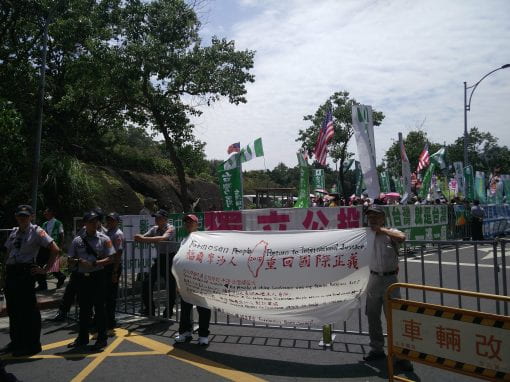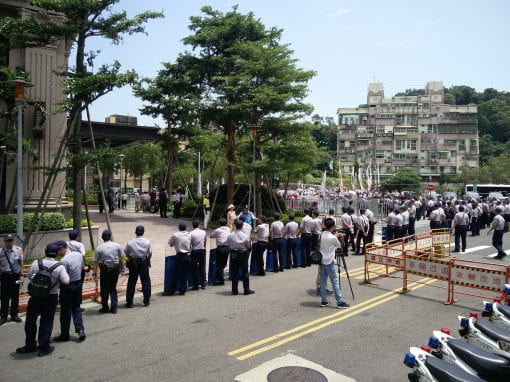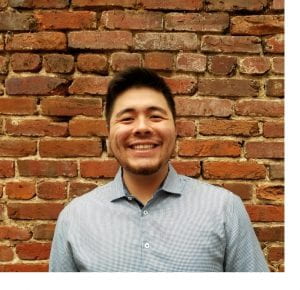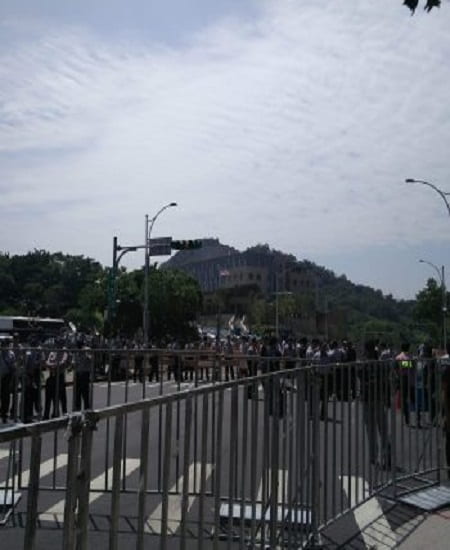

June 12, 2018
I have now been in Taipei, Taiwan for a little more than a week. While I have finally acclimated to the time difference, I have a feeling the same will never be true regarding the weather. Nevertheless, I am incredibly grateful for this opportunity to spend a summer studying Chinese at National Taiwan University’s International Chinese Language Program (ICLP). Without the generous grant from the Sigur Center, I would likely never have had the chance again to devote so much of my time to improving my language abilities.
While most of the Asia policy world was focusing on the Trump-Kim summit in Singapore, another important change in U.S. policy towards East Asia was occurring in Taipei. I, along with scores of elderly Taiwanese avidly advocating for Taiwanese independence stood outside the new American Institute in Taiwan (AIT) complex for its dedication ceremony. While the ceremony itself was closed to the public, members of Taiwan’s Independence Party arrived by the bus load proudly waving their pan-green independence flags and American flags. As far as I could tell, I was the youngest participant by at least 40 years.
Seeing so many eager citizens declare their love for their own country and the U.S. instilled within me mixed emotions. It was heartwarming to see these elderly Taiwanese celebrating this perceived improvement in Taiwan-U.S. relations. Just thirty years ago, Taiwan was still authoritarian. The chance to peacefully petition their government would have been unthinkable decades ago. An elderly man screamed at a row of police that instead of retaliating, just stoically stood in place. Seeing such active participation in Taiwan’s nascent democracy was truly an incredible spectacle. Conversely, being aware of the immense political obstacles that prevent Taiwanese independence made me realize that they will likely never see what they most desire in their lifetimes.
The new AIT complex finally finished years behind schedule and cost more than $250 million USD. One can only wonder if it was a coincidence that the complex’s dedication ceremony fell on the same day when China and the rest of East Asia were so focused on the Trump-Kim summit. The truth is, the new complex does not signal increased U.S. support for Taiwan. Despite rumors that high ranking officials such as Mike Pompeo or John Bolton would attend the ceremony, a lower ranking official was sent instead. Ostensibly, the U.S. refrained from sending anyone too controversial to avoid upsetting China. Since Trump took office, however, the U.S. has done more vis-à-vis Taiwan than it had in the past fifteen years. Small steps like the Taiwan Travel Act and the opening of the new AIT compound may signify more changes to come during the Trump administration. It is incredibly exciting to have the opportunity to be on the ground in the heart of Taiwan during this time of change.

Alex Bierman, M.A. Security Policy Studies 2019
Sigur Center 2018 Asian Language Fellow
National Taiwan University, Taiwan
Alex Bierman is a M.A. candidate in Security Policy Studies focusing on East Asian security and cyber security. His interests include U.S. policy towards East Asia, Cross-Strait policy, and Chinese politics.


